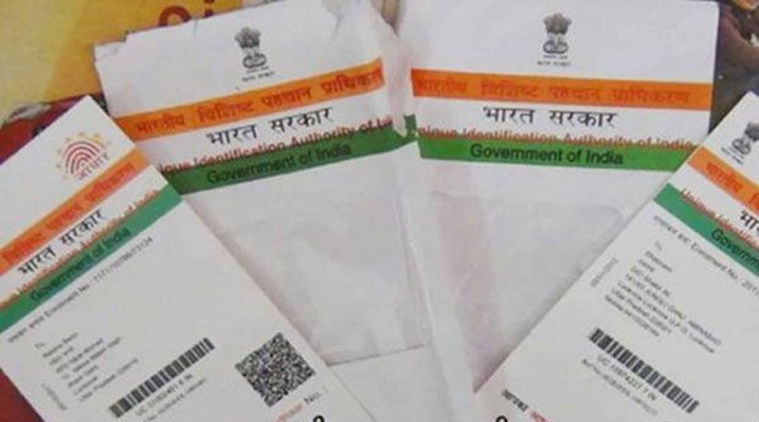 Unique Identification Authority of India (UIDAI) is mandated to issue the 12-digit unique ID.
Unique Identification Authority of India (UIDAI) is mandated to issue the 12-digit unique ID.
The Supreme Court Wednesday pointed out that the Aadhaar Act leaves it open as to what “biological attributes” of an individual can be added as biometric information, and asked the Centre whether this will amount to a case of “excessive delegation” of power.
“The Act leaves it open to the government to add any biological attributes. Today you may not but tomorrow, with the growth of technology, you may decide to add DNA, etc,” Justice D Y Chandrachud, part of a five-judge bench hearing petitions challenging the constitutional validity of the Aadhaar Act, told Attorney General K K Venugopal during Wednesday’s hearing.
The judge was referring to Section 2(g) of the Act, which says, “biometric information means photograph, finger print, Iris scan, or such other biological attributes of an individual as may be specified by regulations”.
Venugopal replied that it can be tested in courts whenever such additions are made. Justice Chandrachud continued, “By giving UIDAI authority to add whatever as biometric, and decide (the) mode of collection…is it not a case of excessive delegation?”
Unique Identification Authority of India (UIDAI) is mandated to issue the 12-digit unique ID.
Venugopal told the bench headed by CJI Dipak Misra, and also comprising Justices A K Sikri, A M Khanwilkar, D Y Chandrachud and Ashok Bhushan, that the regulations will be placed before Parliament under Section 55 of the Act.
But Justice Chandrachud pointed out that the Act merely says Parliament can only disapprove the guidelines when placed before it. The UIDAI will have the initial power to draw up the guidelines, he said. Venugopal said he needs some more time to answer whether this would amount to the excessive delegation.
Referring to submissions of the petitioners, who had referred to some acts that permitted fingerprinting etc, the bench said they had a specific objective to meet — such as prisoner identification — but on Aadhaar, the complaint was about universalistion of the fingerprint, and hence violates the test of proportionality.
Venugopal said the state has been losing thousands of crores due to leakages in system of providing subsidies, and the only way to plug this is to have one identity. “This satisfies a legitimate state interest… It has three objectives: to curb money laundering, tax evasion, and terrorism,” he said.